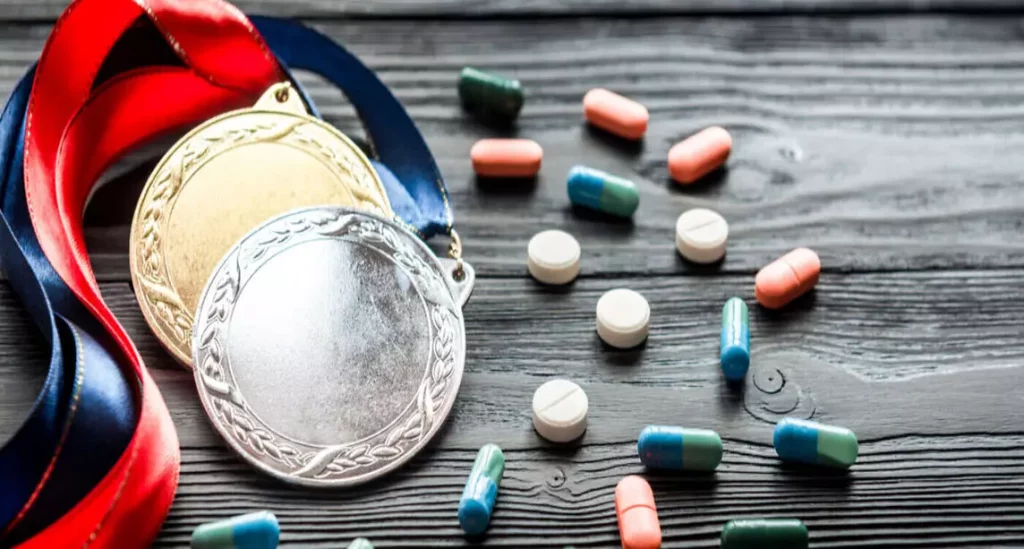One of the most controversial topics in sports today is the use of steroids. Steroids are synthetic substances that mimic the effects of testosterone, a hormone responsible for muscle growth and development. In sports, they are often used to enhance performance and gain a competitive advantage.
However, their use comes at a cost – not only do they have severe side effects, but also violate the principles of fair play and integrity in sports. To combat this issue, many organizations and governing bodies have implemented regulations and testing protocols to detect and deter steroid use in sports. In this article, we will explore how steroids are regulated in sports and the impact these regulations have had on athletes and the sporting industry as a whole.
History of Steroid Use in Sports
The use of steroids in sports dates back to ancient Greece, where athletes would consume animal testicles for performance enhancement. However, it wasn’t until the 20th century that the use of synthetic steroids became widespread among athletes. In the 1950s and 60s, Soviet Olympic athletes were rumored to be using testosterone injections to improve their performance.
In the 1970s, the use of steroids became more prevalent in professional sports such as bodybuilding and weightlifting. It wasn’t until the 1980s that steroid use in sports came under scrutiny when several high-profile athletes tested positive for performance-enhancing drugs.
Also, in 1988, the International Olympic Committee (IOC) established the first list of banned substances, including steroids. Since then, there have been numerous cases of athletes being caught and punished for using steroids in sports.
Regulations and Testing Protocols
Today, many organizations and governing bodies have strict regulations and testing protocols in place to detect steroid use in sports. This includes the IOC, World Anti-Doping Agency (WADA), National Collegiate Athletic Association (NCAA), and various professional sports leagues.
The regulations typically include a list of banned substances, testing protocols, and penalties for athletes who test positive for steroids. The testing methods have also become more advanced, with urine and blood tests now able to detect even small traces of steroids in an athlete’s system.
Moreover, many sporting events now have random and out-of-competition drug testing to catch athletes who may be using steroids outside of competition. These regulations and testing protocols aim to create a level playing field for all athletes and promote fair competition in sports.
Impact on Athletes and Sports Industry

The use of steroids in sports not only has physical effects on athletes but also has a significant impact on the integrity of sports and the sporting industry. Athletes who use steroids risk severe side effects such as liver damage, cardiovascular issues, and hormonal imbalances.
Moreover, when athletes are caught using steroids, it can result in fines, suspensions, loss of endorsements, and tarnished reputations. This not only affects the individual athlete but also the sport they represent and the fans who support them.
In addition, the prevalence of steroid use in sports has led to a public perception that many athletes must be using performance-enhancing drugs to compete at the highest level. This can damage the credibility and legitimacy of sporting events and ultimately affect their popularity and revenue.
Risks and Consequences of Steroid Use
The regulations and testing protocols in place for steroids in sports serve to protect the health of athletes and uphold the principles of fair play. However, there are still some risks and consequences associated with steroid use.
One major concern is that athletes may turn to undetectable or designer steroids, which are not yet included on the banned substances list. This poses a significant health risk to athletes who may be using these substances without knowing their potential side effects.
Moreover, the pressure to perform and succeed in sports can lead some athletes to take risks and use steroids despite the potential consequences. This not only puts their health at risk but also undermines the spirit of fair competition in sports.
Should Steroids Be Allowed in Sports?
The debate over whether steroids should be allowed in sports is ongoing. On one hand, some argue that it is a personal choice and that if used responsibly, steroids can enhance performance without causing harm. Others believe that the use of steroids goes against the principles of fair play and gives an unfair advantage to those who choose to use them.
Ultimately, the regulations and testing protocols in place for steroids in sports aim to protect the health and integrity of athletes and promote fair competition. While there may still be some loopholes in these measures, they serve as an important deterrent against steroid use in sports.
Also, education about the risks and consequences of steroids is crucial for athletes to make informed decisions about their use. As long as these regulations remain in place, it is unlikely that steroids will ever be fully allowed in sports. However, continued efforts must be made to improve and strengthen these measures to ensure a level playing field for all athletes.
Tips for Athletes
As an athlete, it’s essential to understand the regulations and testing protocols in place for steroids in your sport. Here are some tips to help you stay on the right side of the rules:
- Familiarize yourself with the list of banned substances and any updates or changes made by your governing body.
- Be cautious about taking supplements or medications without proper research and consulting with a medical professional or team physician.
- Be aware of the risks and consequences associated with steroid use and make informed decisions about your own health and career.
- Remember that even if you are not using steroids, it is still possible to test positive for them due to contaminated supplements or medications. Therefore, always be vigilant about what you put into your body.
- Stay up to date with any changes or advancements in testing methods and be prepared for random drug tests.
By following these tips and making responsible choices, you can protect your health, integrity, and career as an athlete. Remember that sports should be about fair competition and personal achievement, not taking shortcuts through performance-enhancing drugs such as steroids.
FAQs
Do steroids only affect athletes?
No, steroids can have adverse effects on anyone who uses them, including non-athletes. However, in the context of sports, the focus is primarily on their impact on athletes’ performance and health.
Can I use steroids if prescribed by a doctor?
If you are an athlete subject to drug testing, it is crucial to follow the regulations and testing protocols in place for your sport. This means that even if you have a valid prescription from a doctor, you must still receive permission from your governing body before using any banned substances.
Are there any legal alternatives to steroids?
Yes, there are legal and safe supplements available that can help enhance performance without the risks associated with steroids. It is always important to research and consult with a medical professional before taking any supplements or medications.
How can I support fair competition in sports?
As a fan, you can support fair competition by educating yourself about the regulations and testing protocols in place for steroids in your favorite sports. Additionally, you can speak out against cheating and promote the importance of integrity and honesty in sports.
Conclusion
In conclusion, the use of steroids in sports has significant consequences and risks not only for athletes but also for the overall integrity and credibility of sporting events. While the regulations and testing protocols in place aim to deter steroid use, it’s crucial for athletes to make responsible choices and prioritize their health and fair competition.
As fans, we can also play a role in promoting fair play and supporting clean athletes in their pursuit of excellence. Let’s work together to ensure that sports remain a level playing field for all.

